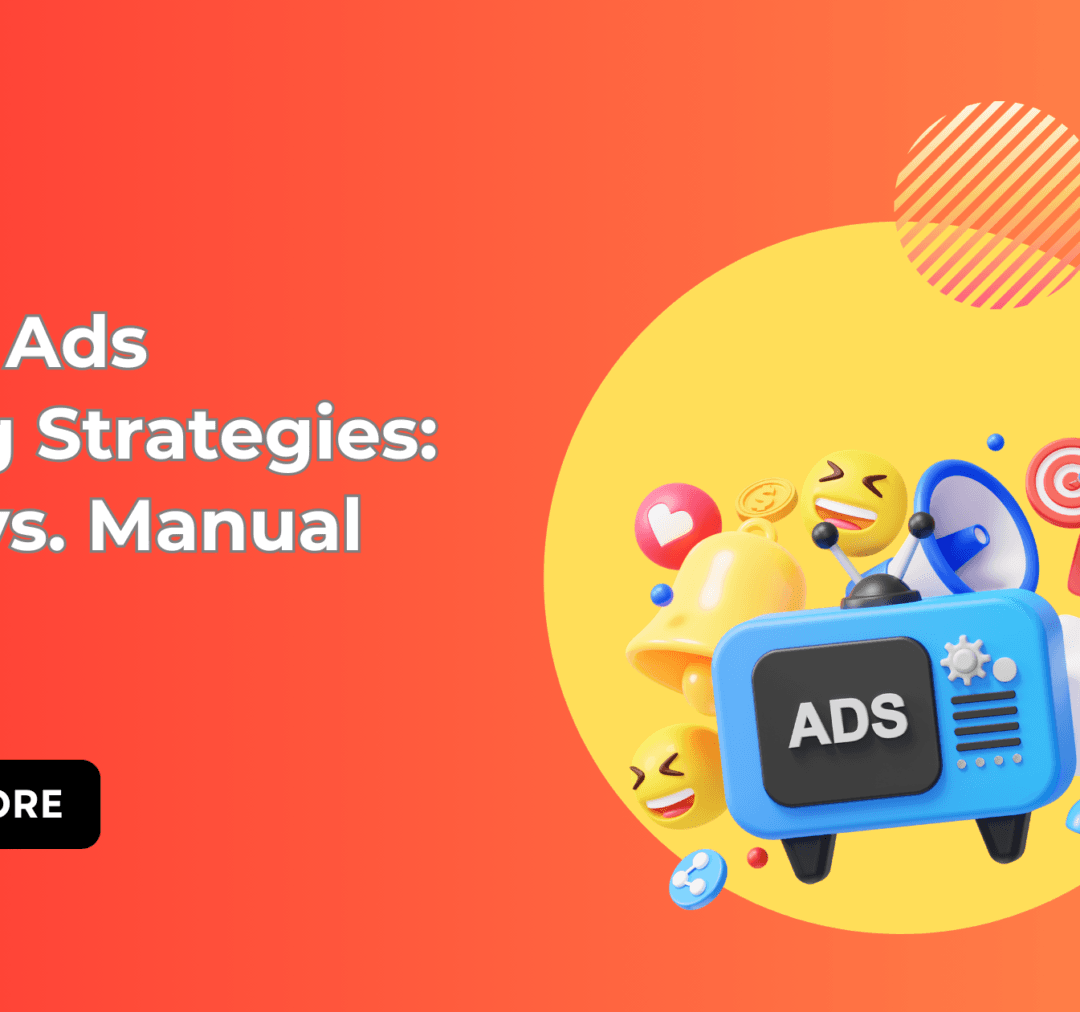Advertising in today’s digital age is all about strategy. While creativity and targeting play a crucial role, the success of your Google Ads campaigns often boils down to one fundamental factor—your bidding strategies. For businesses, particularly agencies like Prashantji Services in Delhi, India, mastering Google Ads bidding strategies can mean the difference between a successful campaign and a wasted budget.
This article will guide you through the ins and outs of smart bidding strategies and manual bidding, helping you decide which approach aligns best with your goals.
What Are Google Ads Bidding Strategies?
In the simplest terms, Google Ads bidding strategies are techniques to determine how much you’re willing to pay for clicks, impressions, or conversions in your ad campaigns. Your bid affects your ad’s placement on Google search results and your return on investment (ROI).
Every business, whether it’s a small start-up or a large enterprise, must carefully select its bidding strategies to maximize the impact of its advertising budget.
Why Are Bidding Strategies Crucial?
Effective bidding strategies are at the heart of every high-performing campaign. They ensure:
- Optimal Budget Utilization: Prevent overspending and underutilization of resources.
- Enhanced Visibility: Secure a better position in the competitive Google Ads auction.
- Achieving Campaign Goals: Whether it’s clicks, leads, or conversions, the right strategy helps achieve targeted outcomes.
What is Smart Bidding?
Smart bidding strategies are automated bidding methods designed to optimize your advertising campaigns through the power of Google’s machine learning technology. These strategies optimize your bids in real-time by leveraging a wide range of data signals such as device type, user location, time of day, and user intent, ensuring the most effective outcomes for your campaigns. By analyzing these data points, Google ensures that your ads are displayed to the right audience at the right time, maximizing your return on investment (ROI).
Types of Smart Bidding Strategies

1. Target CPA (Cost Per Acquisition)
This strategy focuses on achieving conversions at your desired cost per acquisition. For example, if your goal is to spend ₹500 per lead, the system will automatically adjust bids to maintain that cost while driving as many conversions as possible. It’s ideal for advertisers focused on generating leads or sales at a fixed budget.
2. Target ROAS (Return on Ad Spend)
If your primary goal is revenue generation, Target ROAS is the way to go. This approach adjusts bids strategically to ensure a targeted return on ad spend is achieved. For instance, if you want to generate ₹10 for every ₹1 spent, Target ROAS ensures your bids are aligned with that goal. It’s particularly beneficial for e-commerce businesses looking to maximize profits.
3. Maximize Conversions
This strategy is designed to get the maximum number of conversions within your budget. It’s perfect for campaigns where volume is more important than the cost per conversion. For businesses launching new products or seeking to expand their customer base quickly, Maximize Conversions can deliver impactful results.
4. Maximize Conversion Value
Unlike Maximize Conversions, this strategy prioritizes high-value conversions, ensuring you get the most value out of your advertising spend. It’s an excellent choice for businesses that focus on quality leads or premium product sales rather than overall conversion numbers.
Benefits of Smart Bidding
1. Automation Saves Time: Google Ads smart bidding strategies streamline bid adjustments, reducing manual effort while optimizing performance. This is mainly helpful for large-scale campaigns.
2. Leverages Machine Learning: Google’s algorithms analyze vast data points to optimize bids, considering factors like user intent and device. This improves campaign precision and results.
3. Enhanced Campaign Performance: Bids are adjusted to target high-intent users, ensuring higher conversion rates and better ROI, making smart bidding strategies essential for effective advertising.
4. Scalability for Large Campaigns: Smart bidding simplifies bid management for campaigns targeting diverse audiences, providing seamless scalability for growing businesses or digital marketing agencies.
5. Maximizes ROI: Aligns bidding strategies with goals like cost efficiency, conversion growth, or revenue, ensuring businesses achieve optimal results within budget constraints.
What is Manual Bidding?
Unlike smart bidding, where Google’s machine learning determines your bids based on user behavior and campaign goals, manual bidding puts the power entirely in your hands. With manual bidding, advertisers can set the maximum cost-per-click (CPC) for each keyword, ad group, or campaign. This approach provides unparalleled control, allowing you to allocate your budget precisely where you see the most potential for returns.
Advantages of Manual Bidding

1. Granular Control
With manual bidding, you decide the exact amount to bid on each keyword. This allows you to prioritize high-performing terms while reducing spend on underperforming ones, ensuring an optimized and tailored ad strategy.
2. Optimized Budget Allocation
Manual bidding ensures budget focus on impactful keywords. By analyzing campaign performance, advertisers can allocate resources to terms that drive the highest returns, avoiding wasted spending on less effective options.
3. Immediate Adjustments
React swiftly to market trends or performance shifts. Manual bidding allows advertisers to increase or decrease bids in real time, enabling quick decisions to capitalize on opportunities or mitigate risks.
4. Customization for High-Value Campaigns
Tailor bids for niche or premium keywords. This approach is ideal for businesses targeting specific audiences, like local markets or high-value products, ensuring maximum relevance and conversion potential.
When Should You Use Manual Bidding?
1. Campaigns with Limited Data: For new or low-data campaigns, manual bidding offers precise control. Unlike automation, it doesn’t rely on historical data, making it suitable for fresh campaigns or experimental strategies.
2. Businesses Requiring Precise Budget Control: Manual bidding is perfect for businesses with tight budgets. Advertisers can control spend at the keyword level, ensuring cost-effectiveness without compromising campaign performance or exceeding financial constraints.
3. Experienced Advertisers Seeking Full Control: Advertisers with expertise in Google Ads can maximize manual bidding. They can test strategies, adjust bids dynamically, and make data-driven decisions to refine their campaigns for optimal results.
4. Niche Campaigns or Local Targeting: Manual bidding excels in campaigns with specific targets. It allows businesses to focus efforts on keywords most relevant to niche audiences or local markets, ensuring better relevance and ROI.
Key Differences Between Smart and Manual Bidding
| Feature | Smart Bidding | Manual Bidding |
|---|---|---|
| Automation | Uses machine learning for automation | Fully manual, requires monitoring |
| Data Dependence | Needs historical data | Works without prior data |
| Control | Limited | Full |
| Ideal for Beginners | Yes | No |
How to Choose Between Smart and Manual Bidding?
Your choice of bidding strategy google ads should depend on your business goals, available resources, and the nature of your campaign.
Use Smart Bidding If:
- You have enough historical data for machine learning to analyze.
- Your campaign focuses on conversions or revenue generation.
- Time efficiency is a top priority.
Use Manual Bidding If:
- You require granular control over individual keyword bids.
- Your campaign has a small target audience or niche focus.
- You have the expertise and resources for detailed campaign management.
Tips for Optimizing Google Ads Bidding Strategies
- Set Clear Campaign Goals: Define whether you’re aiming for clicks, impressions, or conversions.
- Leverage Historical Data: Analyze past campaign performance to guide your bidding strategy.
- A/B Test Strategies: Experiment with both smart and manual bidding to find the best fit for your needs.
- Monitor Performance Regularly: Stay on top of campaign metrics to make timely adjustments.
- Utilize Google Ads Tools: Tools like the Keyword Planner and Performance Planner can provide valuable insights.
How Prashantji Services Excels with Manual Bidding Strategies?
At Prashantji Services, a leading digital marketing agency in Delhi, manual bidding isn’t just a strategy—it’s an art perfected through years of experience. Our expertise in Google Ads campaigns helps clients achieve unparalleled results by tailoring bids to their unique goals and market dynamics. At Prashantji Services, our dedication to crafting personalized advertising strategies ensures that clients achieve both short-term wins and long-term growth. Manual bidding remains one of our most effective tools for delivering high-impact campaigns tailored to specific business goals.
- Precision in Budget Allocation: We prioritize spending on high-performing keywords, ensuring every rupee works to maximize ROI. For instance, by focusing on long-tail keywords like “top SEO agency in Delhi,” we secure quality traffic at optimal costs.
- Real-Time Adjustments for Maximum Impact: Our team closely monitors campaign metrics and swiftly adjusts bids based on performance trends. This proactive approach ensures our clients remain competitive in a fast-changing advertising landscape.
- Targeted Campaigns for Local Markets: Manual bidding allows us to create hyper-targeted campaigns for Delhi-based businesses. By focusing on localized keywords and audience behavior, we help clients dominate their specific market segments.
- Driving Results in Niche Industries: Whether it’s luxury real estate, education, or e-commerce, we leverage manual bidding to refine ad strategies for niche industries. This attention to detail ensures our clients outshine their competitors.
FAQs
Q1. What’s the difference between Target CPA and Target ROAS?
Ans: Target CPA focuses on achieving conversions at a specific cost, while Target ROAS aims to maximize revenue by targeting a return percentage.
Q2. How do I know if smart bidding is right for my campaign?
Ans: If you have sufficient historical data and a clear conversion goal, Google Ads smart bidding can save time and optimize performance effectively.
Q3. Can I switch between smart and manual bidding?
Ans: Yes, you can switch strategies anytime to test and adapt based on your campaign performance.
Q4. Is manual bidding suitable for beginners?
Ans: Manual bidding requires experience and constant monitoring, making it less ideal for beginners.
Q5. How can I improve my bidding strategies?
Ans: Focus on clear goals, use data-driven insights, and regularly test different approaches to refine your strategy.








